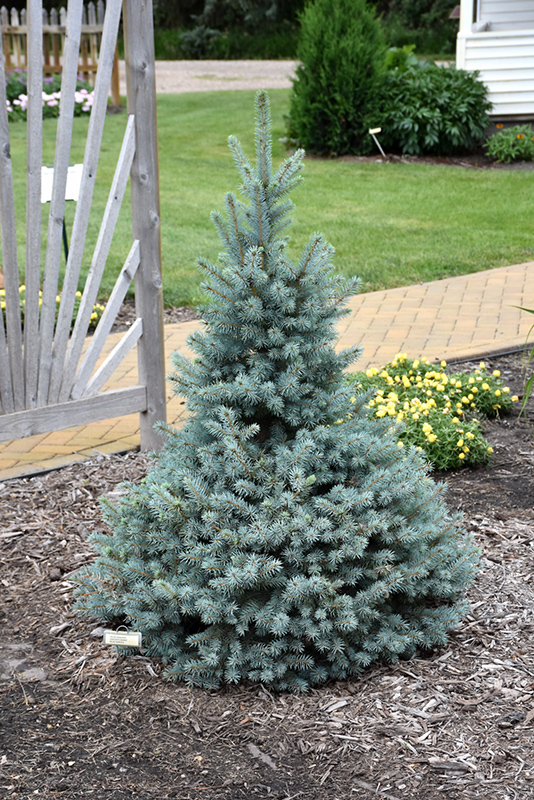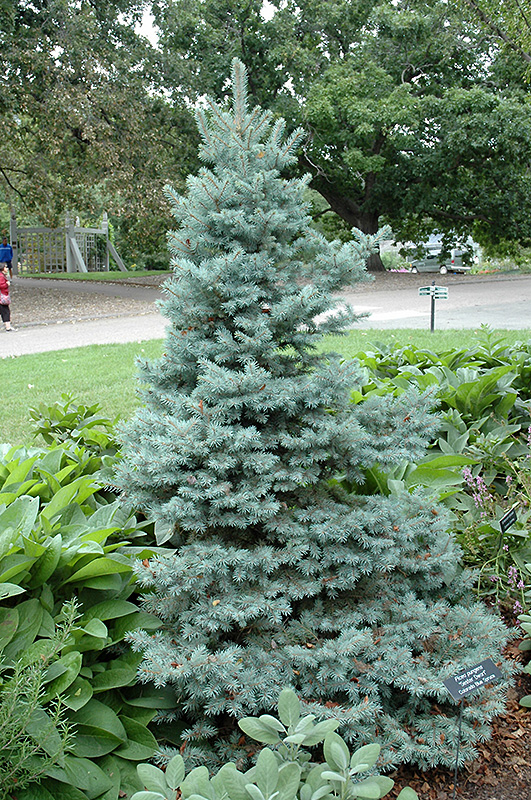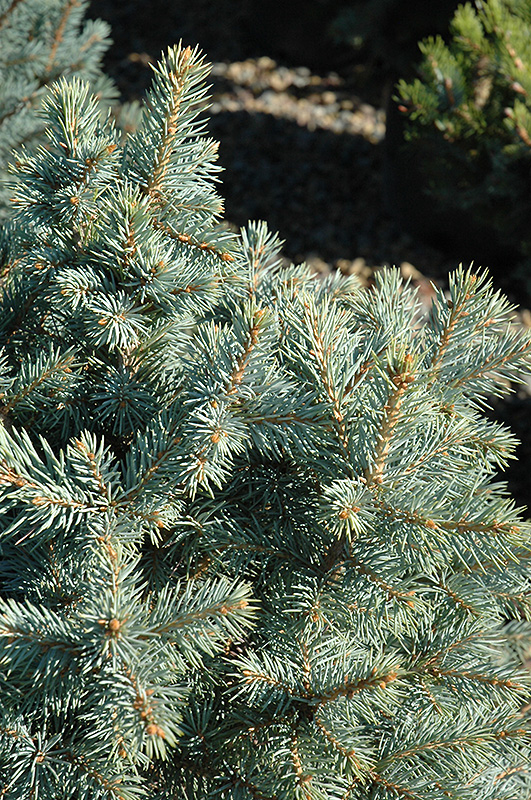Height: 10 feet
Spread: 5 feet
Sunlight:
![]()
Hardiness Zone: 2
Other Names: Blue Colorado Spruce;Colorado Blue Spruce
Description:
Stunning blue needles, slow growth rate, and a classic conical form make this dwarf spruce an ideal plant for the modern landscape; like a perfect miniature version of the Colorodo blue spruce, requires little maintenance to maintain its tidy form
Ornamental Features
Sester Dwarf Blue Spruce is a dwarf conifer which is primarily valued in the landscape or garden for its distinctively pyramidal habit of growth. It has attractive silvery blue evergreen foliage. The needles are highly ornamental and remain silvery blue throughout the winter.
Landscape Attributes
Sester Dwarf Blue Spruce is a dense multi-stemmed evergreen shrub with a distinctive and refined pyramidal form. Its relatively fine texture sets it apart from other landscape plants with less refined foliage.
This is a relatively low maintenance shrub. When pruning is necessary, it is recommended to only trim back the new growth of the current season, other than to remove any dieback. Deer don't particularly care for this plant and will usually leave it alone in favor of tastier treats. It has no significant negative characteristics.
Sester Dwarf Blue Spruce is recommended for the following landscape applications;
- Accent
- Vertical Accent
- General Garden Use
Planting & Growing
Sester Dwarf Blue Spruce will grow to be about 10 feet tall at maturity, with a spread of 5 feet. It tends to fill out right to the ground and therefore doesn't necessarily require facer plants in front, and is suitable for planting under power lines. It grows at a slow rate, and under ideal conditions can be expected to live for 40 years or more.
This shrub should only be grown in full sunlight. It is very adaptable to both dry and moist growing conditions, but will not tolerate any standing water. It is considered to be drought-tolerant, and thus makes an ideal choice for xeriscaping or the moisture-conserving landscape. It is not particular as to soil type or pH, and is able to handle environmental salt. It is highly tolerant of urban pollution and will even thrive in inner city environments. This is a selection of a native North American species.



